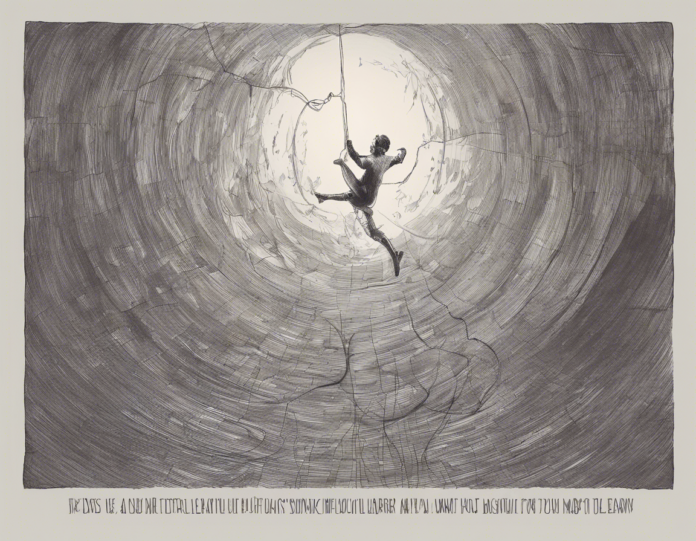Learning a new skill can be an exciting and rewarding experience, but it can also come with its fair share of challenges and frustrations that test your patience. As someone who has embarked on a journey to master a challenging skill, I understand the ups and downs that come with it. In this blog post, I will share my personal experiences and insights on how to master patience while learning a new skill.
The Importance of Patience in Skill Acquisition
Patience is a virtue that is essential when it comes to mastering a new skill. It is the ability to persevere and stay focused despite setbacks, slow progress, or obstacles that may come your way. Patience allows you to stay committed to your goals and not give up when the going gets tough. When learning a challenging skill, it is important to remind yourself that progress takes time, and success is a gradual process that requires dedication and persistence.
My Journey with Learning a Challenging Skill
Setting Realistic Expectations
When I first decided to learn the skill, I was full of enthusiasm and eager to see rapid progress. However, I soon realized that mastering a challenging skill is a gradual process that requires time and effort. Setting realistic expectations helped me manage my frustrations and stay motivated during the learning process.
Embracing Failure as a Learning Opportunity
Failure is inevitable when learning a new skill. Instead of viewing failure as a setback, I learned to embrace it as a valuable learning opportunity. Each mistake or setback taught me valuable lessons that helped me improve and grow stronger in my skill.
Consistent Practice and Perseverance
Consistent practice is key to mastering any skill. I made it a point to practice regularly, even on days when I didn’t feel motivated. Through perseverance and dedication, I was able to make steady progress and improve my abilities over time.
Seeking Guidance and Support
Learning a challenging skill can be daunting, but seeking guidance and support from mentors, teachers, or peers can make a significant difference. I reached out to experienced individuals in the field, attended workshops, and joined online communities to gain valuable insights and advice that helped me navigate the learning process more effectively.
Celebrating Small Wins
Celebrating small wins along the way kept me motivated and reminded me of how far I had come. Whether it was mastering a difficult technique or achieving a personal goal, acknowledging my progress helped me stay positive and encouraged me to keep pushing forward.
Strategies to Cultivate Patience in Skill Acquisition
Break Down Goals into Manageable Steps
Breaking down your goals into smaller, more manageable steps can make the learning process less overwhelming. By focusing on one step at a time, you can track your progress more effectively and stay motivated as you work towards mastering the skill.
Practice Mindfulness and Stay Present
Practicing mindfulness can help cultivate patience by allowing you to stay present and focused on the task at hand. By being fully engaged in the learning process and setting aside distractions, you can improve your concentration and immerse yourself in the skill you are trying to master.
Develop a Growth Mindset
Adopting a growth mindset can help shift your perspective on challenges and setbacks. Instead of viewing obstacles as roadblocks, see them as opportunities for growth and learning. By embracing challenges and seeing them as part of the learning process, you can develop resilience and perseverance in the face of difficulties.
Practice Self-Compassion
Learning a new skill can be a demanding process, and it is important to practice self-compassion along the way. Be kind to yourself when you face setbacks or make mistakes, and remember that progress takes time. Treat yourself with the same patience and understanding that you would offer to a friend facing a similar challenge.
Take Breaks and Rest
It is essential to listen to your body and mind during the learning process. Taking regular breaks and allowing yourself time to rest and recharge can prevent burnout and help you approach the skill with renewed energy and enthusiasm. Remember that rest is just as important as practice in maintaining a healthy balance during your journey.
Frequently Asked Questions (FAQs)
1. How do I stay motivated when progress is slow?
Answer: Remind yourself of your reasons for wanting to learn the skill and focus on the long-term benefits. Celebrate small milestones along the way and stay connected to your passion for the skill.
2. What should I do when I feel overwhelmed or frustrated with my lack of progress?
Answer: Take a step back and reassess your approach. Break down the skill into smaller, manageable tasks, and seek support from mentors or peers who can offer guidance and encouragement.
3. How can I maintain patience when facing challenges or setbacks?
Answer: Practice mindfulness and self-compassion to stay present and kind to yourself during difficult times. Remember that setbacks are a natural part of the learning process and offer valuable opportunities for growth.
4. Is it normal to feel demotivated at times during the learning process?
Answer: Yes, it is normal to experience fluctuations in motivation while learning a challenging skill. Stay connected to your passion, seek support from others, and remind yourself of your progress and accomplishments along the way.
5. How can I balance practicing the skill with other commitments and responsibilities?
Answer: Prioritize your time effectively by creating a schedule that allows for consistent practice while also accommodating other responsibilities. Remember to take breaks and prioritize self-care to maintain a healthy balance during your learning journey.
As you embark on your own journey to master a challenging skill, remember that patience is a valuable asset that will aid you in overcoming obstacles and achieving your goals. Embrace the learning process wholeheartedly, celebrate your progress along the way, and stay committed to your passion for the skill. With dedication, perseverance, and a positive mindset, you can overcome challenges and reach new heights in your skill acquisition journey.









